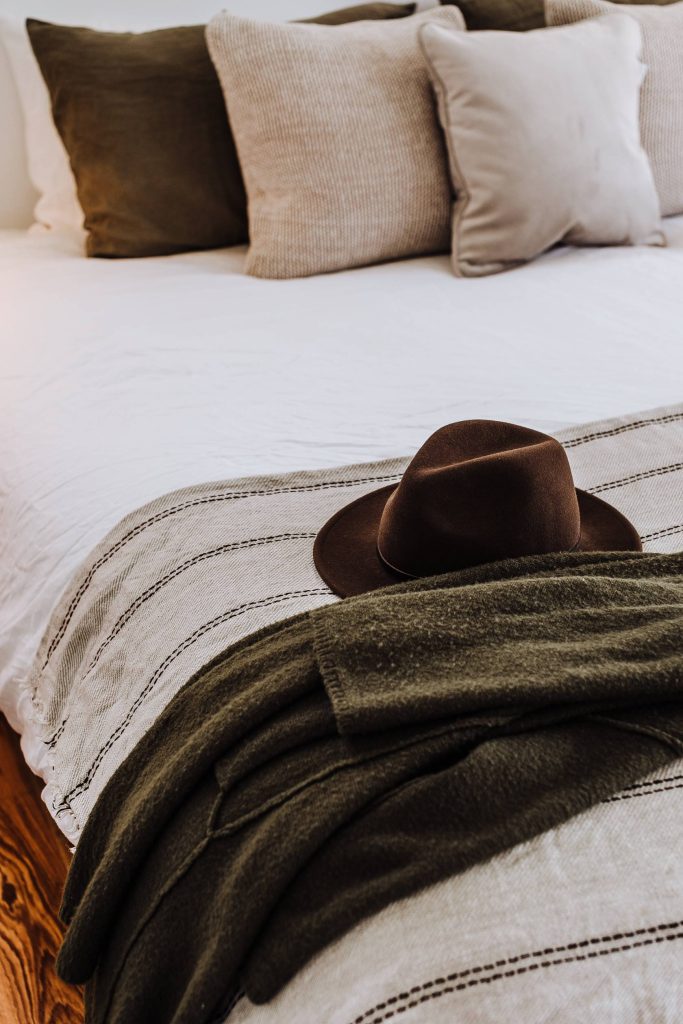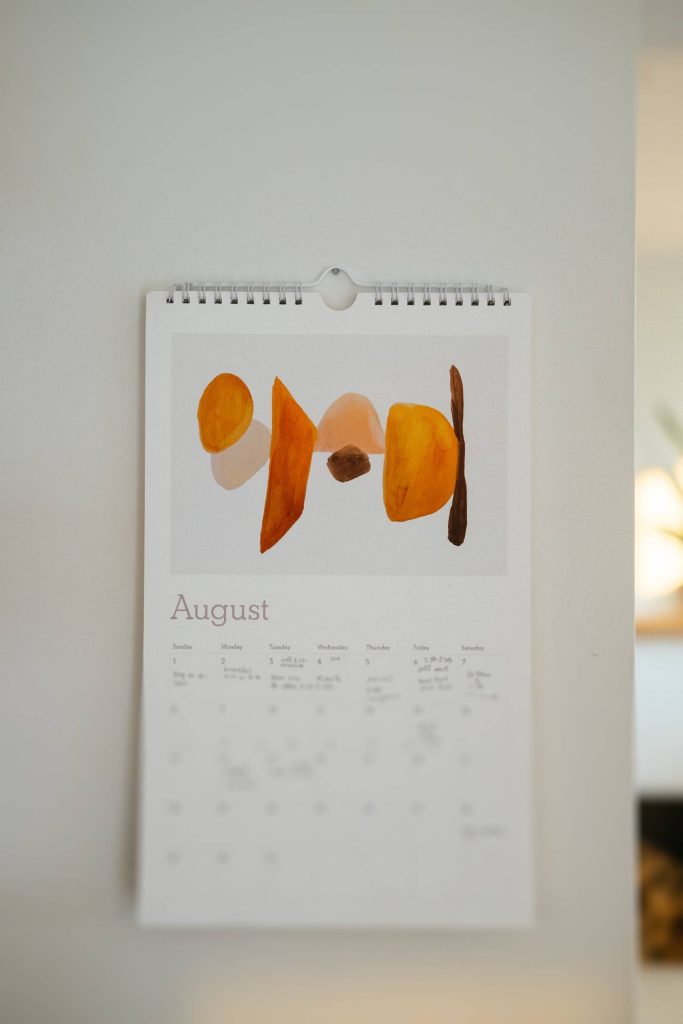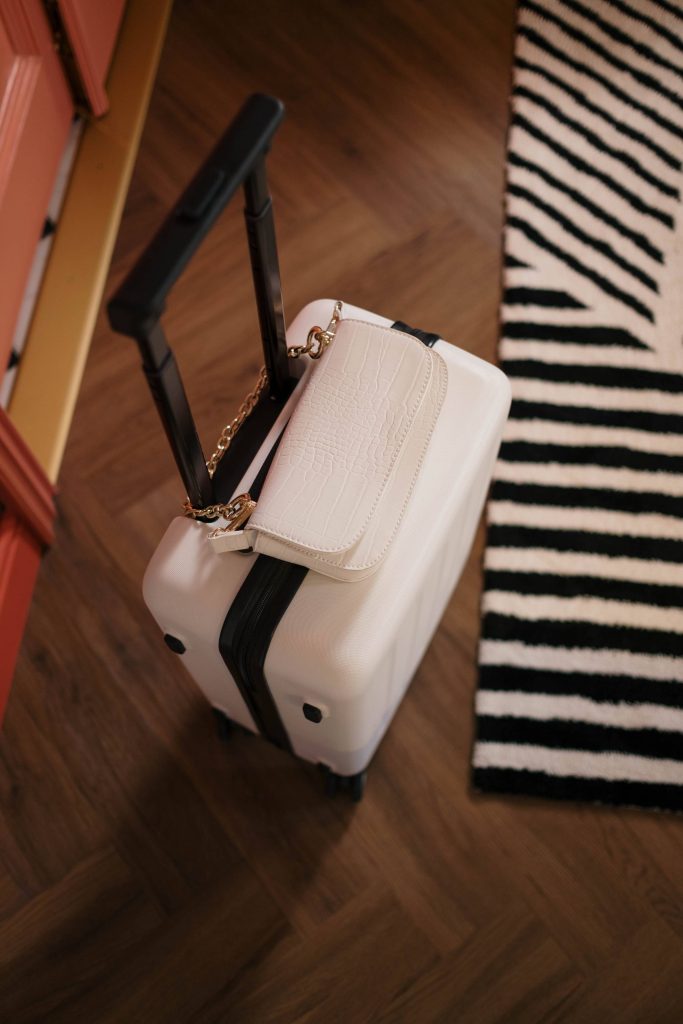From time to time a guest’s questions and comments can make you feel a little uneasy or unsure. Sometimes it’s nothing to worry about, the booking finishes and it turns out that the guest was completely uneventful. Other times, you’ll be angry that you didn’t trust your gut. As you continue hosting you’ll pick up on these common Airbnb Guest red flags.
Here’s some ‘guest red flags’ or common signs that a guest may be more trouble than they are worth or could potentially cause you some issues.
“Can we discuss this by text? Can you call me?”
Once a guest has a booking with you, they’ll have access to your contact number. You’ll also have access to theirs too. After a booking (or even during) a guest may attempt to contact you off the platform via phone calls, WhatsApp or texts.
I’d advise against doing this and always keep your correspondence on the App of the platform you are using (i.e Airbnb, Vrbo etc).
The App offers a messaging system which can be monitored and stored for reference by Airbnb support if you need them. This is particularly important if the guest presents you with a dispute or flags an issue, as you’ll have a paper trail that Airbnb support can monitor and read through.
Asking to discuss outside of Airbnb messages (even via text) leaves you open to dealing with scams outside the security of the platform. Not only this, but using the App to converse is convenient for both hosts and guests. For this reason, an Airbnb guest red flag is a guest who insists on only talking via another method.
“Can I have a discount?”
I can understand a guest asking for a discount on a long stay. You can even tweak your booking settings to automatically provide discounts for stays over a certain length of time.
However, the guest that asks for a reduced rate on one- or two-night stays is the guest I really don’t like to host.
For the work I put in, I feel my rate is very fair. Taking in to account the cost (and risk) to myself, I think it is quite a reasonable deal. Especially when this is in comparison to what else is available in my local area.
A guest could easily source a generic room in chain hotel for about £50 less than my nightly prices (depending on time of year and time in advance of booking). But in doing so, they wouldn’t receive half of the extras, privacy or added space that my place offers.
When asked for a discount on a one- or two-night booking, I politely decline. I state that it sadly isn’t financially viable to reduce the price any further. I also note that there are plenty of other places in the local area that will fit their budget.
Hey, I get it, sometimes if you don’t ask you don’t get. But when a guest is persistent regarding a reduced rate, I find myself hovering over the block button. My price is fair and I know what it’s worth, asking for a hefty discount can verge on an insult.
Not to mention, from experience guests looking for money off from the start can be troublesome. If you refuse a discount and they go ahead and book anyway, they could potentially mark down your ‘value’ rating despite making the decision to go ahead. (Yes this has happened to me!)

Third Party Bookings
Many people like to hustle to make a bit of extra money. I have no problem with that at all. Hey, we’ve all got to make our money somehow, that’s why we’re on Airbnb.
Some people list properties found on Airbnb elsewhere online on booking websites but for a higher price.
This means they’ll act as the middleman. By making bookings themselves and sub-letting your property to another party under a separate contract they can make a bit of money.
This is against Airbnb’s terms and conditions. Whilst I’ve realised some of my bookings have ended up being third party bookings without issue, these should be discouraged.
Some other types of third party bookings I’ve experienced have been guests booking on behalf of family members, such as elderly family coming to stay in the area and these have been relatively stress free despite still being technically a breach of the rules.
For one of your guests renting your Airbnb out to another stranger, they’ll have all the details of the guest they are letting into your property. ID of the guest on the booking is required to be allowed to book with you. The person booking on someone else’s behalf means that you have no trace of the person entering your property.
Third party bookings don’t appear to happen a lot in shared spaces with a host that lives in the property with the guests. They do occur often in private full-space self-check in rentals as there is nobody to greet the third Party when they show up.
State clearly on your listing that you do not accept third party bookings. To prevent this, request that the guest placing the booking must be present for the duration of the stay.
Be suspicious of user profiles that mention many different names, or guests that show up looking nothing like their photos.
Remember, you are well within your rights to query with the guest via the Airbnb platform who it is that has let themselves in. It’s your property and you have a right to know who is entering and staying there.
Requesting things that you’ve specifically said No to.
My 1 Bed flat listing clearly states, ‘No Parties or Events and no more than 3 people in the property’. Yet I frequently get messages requesting to host a small gathering of a larger handful of people for a birthday celebration.
Whilst up front honesty is admittedly the decent thing for a guest to do who wouldn’t mean to cause intentional damage, these kinds of messages show that the guest hasn’t bothered to read the listing description or amenity list and has solely looked at the pictures only.
Not reading the listing description is just asking for guest disappointment and issues later in the booking.
When this happens, politely point a guest to your description, clarify that your property won’t be suitable for their needs and wish them luck on their search. No further discussion or debates needed!
Likewise, guests that have already checked in can keep pushing for more from you. Whether that’s asking for more time in the property or asking to invite people over.
These can be tricky requests to deal with. Whilst a good host goes above and beyond to be accommodating and welcoming, the original terms of the listing don’t change once the guest checks in. Politely reminding them of the offering that they’ve agreed to when they booked can avoid this.

Last Minute Bookings
I’m torn with this one, but a last-minute reservation does raise some valid pre-booking questions. Who needs to book a property right at the wire the very night before arrival? Who need a property the very same day?
Most last minute bookings will be from people who are based locally. Airbnb often flags last minute bookings as potential issue bookings. It is assumed that this could be for an impromptu party.
I can think of one last minute booking that was made with Instant Book right before the cut off that was problematic for me and it didn’t end up being a party.
Having said this, I’ve also had several last-minute bookings (booked the day before) that ended up being completely stress free. These guests were with pleasant and happy who left me glowing feedback.
One was a couple that booked a spur of the moment night away and another was someone with a last-minute work arrangement who couldn’t book a hotel.
It’s often accepted that bookings far in advance are ones less likely to be troublesome. The logic is that as the person is a little more organised, it’s legitimate.
I’ve had problems with a booking a month and a half in advance that ended up throwing a large party in my 1 Bedroom property.
I honestly don’t think you can 100% predict whether a late booking is problematic without considering other information on the profile.
Even then, I’ve been burned myself. It’s just one of those things to keep in mind with all the information and guest contact you are presented with beforehand.
Lots of demands before booking
I get that sometimes when travelling and booking a rental you’ll want to get organised and that this can be stressful. I also get that planning everything often means that you need to have special requirements or allowances for your travel.
But guests who are demanding and ask for numerous adjustments before they even place a booking can often be difficult to host during their stay. Sometimes you can accommodate all of a guest’s needs (however difficult) without issue.
Occasionally when guests require a list of changes to your set up and seem demanding and entitled from the get-go, it can be off putting. Depending on their demands and expectations it may actually not be worth hosting them at all.
Look at it this way, your listing is set up the way it is and this is what you are advertising and offering. The way you have your property set up currently is how you’ve presented it. You know what guests will expect and what your usual standard is based on the price you charge. You’ve done your calculations and know that your offering is profitable.
Deviating from what you’re used to providing means you’ll have too many changes to your business hosting model which may either make it nonviable for you and not worth your while or ultimately just be too stressful for you.
Hosting needs to be as stress free as possible for both hosts and guests. Making things easy for yourself when potential guests show that they might be more aggravation than they are worth is key to this.
The Guest with Bad Feedback
I know this seems like a given, but Airbnb hosts in particular feel pressured to accept low rated guests. This is despite a guests receiving previous bad reviews. A guest that has already received bad feedback from a host is one of the biggest Airbnb Guest red flags to pay attention to.
For hosts with listings of full properties, you then spend the whole booking duration feeling worried and stressed from afar. For me, I’d be wary of a low scoring guest with anything 4 stars and under.
It sounds harsh but that suggests that the host picked up on something significant from the guests previous behaviour. From experience, hosts will more often than not give guests the benefit of the doubt.
I’ve often found that a guests I had accepted with a 3-star rating did seem to have improved their guest etiquette from their first low rated booking. In many cases I ended up leaving a 5 star review of them.
Sometimes the first booking is a learning curve for a guest who has never used the Airbnb platform and experienced what it takes to be a part of the Airbnb community.
However, I’d be reluctant to allow a guest to book with two low rated reviews. The first time is a lesson for the guest in what is to be expected of them. Sometimes I think guests need reminding.
The second low rated experience is just arrogance or ignorance on the guests part. I wouldn’t want to let somebody into my home unattended with either of those attributes.
Always read a guest’s feedback and trust other hosts decisions. Hosts are in the same boat as you and you are both on the same team to look out for each other.

The Pop-Up Brothel or Drug Collection Point.
I have no issue myself with people making a living however they choose. My neighbours however might not like my property being turned into a shop with a lot of footfall!
Before I rented on Airbnb myself, my neighbour’s property was the go-to renting spot for working girls who would make several bookings every week for a few days under each other’s accounts and all work out of the property.
The disruption to the building was noticeable instantly and made living next door to it an absolute hell.
I had parcels stolen from my front door by their anonymous passing trade. I also lived with the front door to the building slamming all day and night. Not to mention, people knocking on my door in the early hours of the morning thinking they’d found the right place.
A ring doorbell or similar exterior monitoring device can help ensure that your short-term rental is not used for illegal activity. Some of the biggest activities are a pop-up brothel or drug collection point. As a host, you’ll want to discourage anyone looking for this type of property.
The trouble is, Airbnbs and short-term rentals make perfect places for fly by night enterprise and illegal work.
Furthermore, if you suspect your rental is being used in such a way you can actually be liable. This is particularly the case if you know that your property is being used for sex work. In the UK, you could be considered complicit in operating a brothel.
The days of drug dealers and sex workers operating from hotels is long gone. They now no longer need to navigate the front reception desk. Short term rentals offer complete privacy all over your neighbourhood.
Likewise, a drug dealer operating out of your property can lead to potential violence. It can also cause returning strangers or even future theft even when the dealer has left.
This can be intimidating and a cause for concern for the security of your property. But also for your personal security and the security of your future guests.
In Summary
What amazes me, is that one of Airbnb’s property features is describing if you property has external CCTV or not. You can list not having external security cameras as a specific feature.
For me, the only person looking to avoid being caught on camera, is somebody getting up to no good.
As always, if in doubt – trust your gut. It can be easy to allow anxiety to govern your decisions when guests ask unusual questions. But remember this is just because bad guests do exist and you’ll want to protect your home.
With time, you’ll find some red flags we’re obviously red. Some turn out to be orange and some red flags turn out not to be red flags at all. Use your best judgement.
